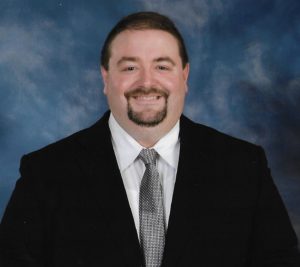Podcast: Play in new window | Download
Subscribe: Email | TuneIn | RSS | More
By: Brian G. Chilton | April 23, 2018
One question has plagued people, especially believers, for millennia: Why do bad things happen to good people; especially those who have trusted God? This question has been around since before the time of Christ. This question has especially hit hard in our community. We lost a young and kind man by the name of Jamie Lanier. Jamie was in his early 40s and was involved in a fatal ATV accident in West Virginia while helping his friends clean up debris.

Jamie’s early demise brought the question in full view. Why did God allow this man to die at such an early age while allowing worse people to seemingly live life to their fullest? Dr. Amy Downey of Tzedakah Ministries shared a powerful passage of Scripture that offers some interesting insights to this question. She mentioned Isaiah 57:1-2 which reads, “The righteous person perishes, and no one takes it to heart; the faithful are taken away, with no one realizing that the righteous person is taken away because of evil. He will enter into peace—they will rest on their beds—everyone who lives uprightly” (Isa. 57:1-2, CSB). Isaiah grants three comforting truths to help navigate these difficult waters.
I. Sign of a Fallen World (57:1).
Isaiah notes that the righteous do perish in their world, and many do not even pay their passing any mind as “no one takes it to heart” (57:1). A double problem is found in the text. First, the righteous do often suffer. Second, many do not reflect on the issue as they are caught up in the world as it is. Yet, the prophet goes on to say that the reason the circumstances are as they present themselves to be is “because of evil” (57:1). The CSB footnote claims that an alternate reading is “taken away from the presence of evil.” Either way, the truth is still found that this world is not as it should be.
The world is fallen because of sin. Humanity decided that they would rather rule themselves than to obey God (see Gen. 3). The root of sin is pride (Pr. 21:4). This fallenness has changed the dynamic of the world itself. God in his sovereignty gave us Proverbs along with Job and Ecclesiastes. Proverbs describes how the world should work: Good things should come to good people; the bad should be punished; and those that work hard should be rewarded. But, that doesn’t always work out. That’s where Job and Ecclesiastes comes into play. Job describes how a righteous man had everything taken from him. God’s response was, trust me in the good times, as well as in the bad. God knew more than Job, even the spiritual war taking place around Job.
Thinking that the world is fallen may not give comfort in itself. The comfort comes when one surveils the larger picture. Consider the following points.
II. Security of a Faithful Word (57:2).
God promised through Isaiah that the righteous person would “enter into peace” (57:2). This peace is describing the peace that comes from the afterlife awaiting those who trust in God and his promises. If we were to only look at the things of this world, we would have a right to become depressed. But, the story does not end there. God has a wonderful and wondrous eternity in store for those who are in Christ. That is why the Scripture states that “the death of [God’s] faithful ones is valuable in the LORD’s sight” (Ps. 116:15). Why? Because the saints who die in the Lord will receive peace and the blessings that God provides. God is faithful in his promises. He always has been. He always will be.
III. Swearing of a Future Warrant (57:2).
The latter part of verse 2 notes that the faithful will “rest on their beds—everyone who lives uprightly” (57:2). Salvation changes a person. God transforms a person thoroughly. Therefore, the person will not be the same as they once were. God did not promise that everyone will enter into this peaceful eternity he described through Isaiah. Rather, only the righteous—that is, the people of faith—would. This implies two things: Faithful believers (good people) will receive good things in eternity, whereas evil people will receive full justice. God is going to fix the problems of this world. This truth is fully expressed in Christ Jesus.
Conclusion
I close with an additional insight that I would like to share. It actually comes from a story in the late 1990s (c. 1997). When I attended Fruitland Baptist Bible College in Hendersonville, NC, I was impressed by the preaching of the institution’s president Dr. Randy Kilby. Dr. Kilby was an incredible speaker. When he was in the Spirit, he would take out his handkerchief and spin it around as if it were a Terrible Towel and he was a Steeler’s fan at Heinz Field. At the age of 40, Dr. Kilby died from a massive heart attack after preaching a message at a church in Lenoir, NC. His funeral was held at Mud Creek Baptist Church in Hendersonville, NC. His godly mother looked down at his body lying in the casket and said, “Son, what worse fate did God save you from?” That question has resonated with me even now 21 years after the fact. Perhaps God does take the righteous early at times to save them from something worse that could have come. Here, we address God’s use of factuals and counter-factuals as Molinists often do.
In the end, we have to trust God. When we endure times that do not make sense, we don’t need to focus on the things we don’t know about God, but rather on the things we do know about him. We know God is worth trusting because he is good (Ps. 145:9), he is loving (1 Jn. 4:8), he is all wise (Dan. 2:20), and he is all-knowing (Ps. 94:11). This is the measure of true faith: Not that we trust God when he makes sense, but that we trust him when he doesn’t.
 Brian G. Chilton is the founder of BellatorChristi.com and is the host of The Bellator Christi Podcast. He received his Master of Divinity in Theology from Liberty University (with high distinction); his Bachelor of Science in Religious Studies and Philosophy from Gardner-Webb University (with honors); and received certification in Christian Apologetics from Biola University. Brian is currently in the Ph.D. program in Theology and Apologetics at Liberty University. Brian has been in the ministry for over 15 years and serves as the pastor of Huntsville Baptist Church in Yadkinville, North Carolina.
Brian G. Chilton is the founder of BellatorChristi.com and is the host of The Bellator Christi Podcast. He received his Master of Divinity in Theology from Liberty University (with high distinction); his Bachelor of Science in Religious Studies and Philosophy from Gardner-Webb University (with honors); and received certification in Christian Apologetics from Biola University. Brian is currently in the Ph.D. program in Theology and Apologetics at Liberty University. Brian has been in the ministry for over 15 years and serves as the pastor of Huntsville Baptist Church in Yadkinville, North Carolina.
About the Podcast
 The Bellator Christi Podcast is a production of BellatorChristi.com and is protected under Creative Commons copyright. All rights reserved. The theme song is “Crucified,” written by John and Michaela Lemonis, performed by Crosby Lane, and produced by Mansion Entertainment (https://crosbylane.com). The views expressed on this podcast may not represent those of Bellator Christi or its affiliates. Be sure to subscribe to BellatorChristi.com to receive all the articles and podcasts in your inbox for free. Also, be sure to check out The Bellator Christi Podcast on iTunes, TuneIn, Stitcher and Google Play to subscribe for free.
The Bellator Christi Podcast is a production of BellatorChristi.com and is protected under Creative Commons copyright. All rights reserved. The theme song is “Crucified,” written by John and Michaela Lemonis, performed by Crosby Lane, and produced by Mansion Entertainment (https://crosbylane.com). The views expressed on this podcast may not represent those of Bellator Christi or its affiliates. Be sure to subscribe to BellatorChristi.com to receive all the articles and podcasts in your inbox for free. Also, be sure to check out The Bellator Christi Podcast on iTunes, TuneIn, Stitcher and Google Play to subscribe for free.
© 2018. BellatorChristi.com.






[…] https://bellatorchristi.com/2018/04/23/podcast-blog-4-23-18-navigating-the-waters-of-why-bad-things-… […]